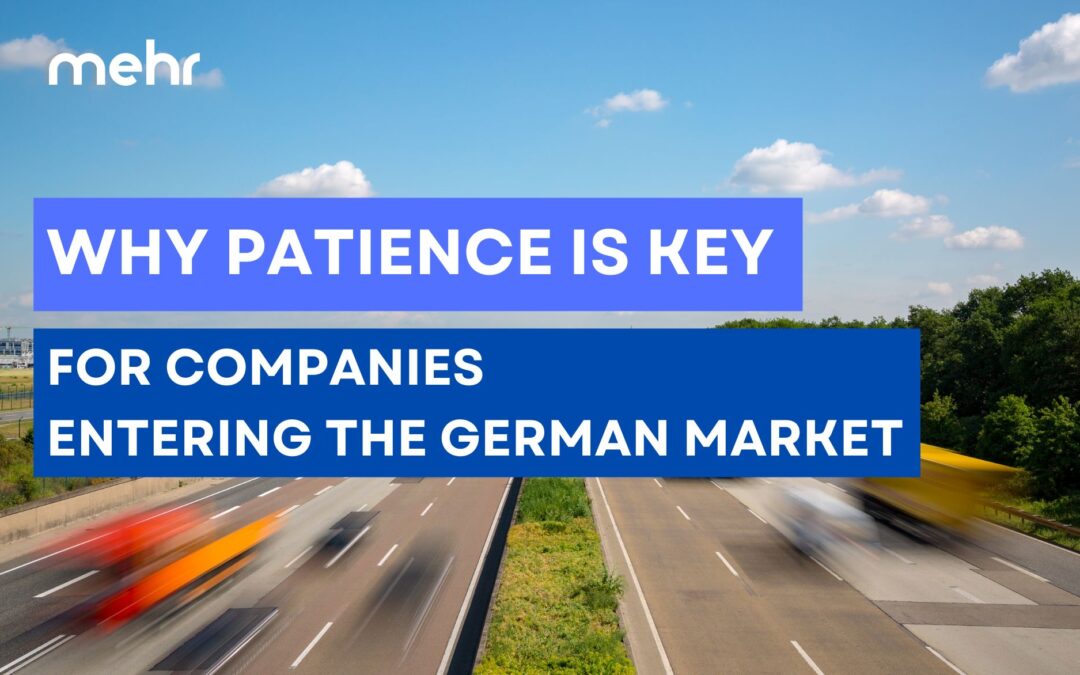The Long Road to Success
Expanding into international markets is an exciting prospect for any company. With its large economy, strong industrial base, and central location in Europe, Germany is particularly attractive. However, businesses looking to enter the German market need to approach it with patience and a long-term perspective. Quick wins are rare, and success requires a deep understanding of the local business culture, regulations, and consumer behaviors.
But the good news? The rewards for sticking it out are substantial. German customers are known for their reliability, loyalty, and long-term business relationships, making the German market well worth the effort.
The German Market: No Room for Shortcuts
1. Complex Regulations and Bureaucracy
Germany is known for its well-developed regulatory framework, and navigating it can be challenging, particularly for foreign businesses. The legal environment is highly structured, with specific regulations covering everything from product safety standards to labor laws. Licensing processes and compliance with local and EU regulations can be time-consuming and sometimes frustrating for businesses unfamiliar with them.
While this bureaucracy can slow down market entry, it also provides stability and a level playing field once these hurdles are overcome.
2. Thorough and Detail-Oriented Consumers
German consumers are known for being highly informed and cautious in their purchasing decisions. They do not easily embrace trends or impulsive purchases. Instead, they take their time to research, compare products, and evaluate quality. Price is often a secondary factor compared to functionality, reliability, and longevity. As a result, companies must focus on building trust and demonstrating the value of their products or services.
This consumer mindset means that businesses entering the German market need to be prepared to invest in long-term brand-building efforts. Expecting immediate sales growth without first establishing a solid reputation and track record is unrealistic.
3. Relationship-Driven Business Culture
German business culture is built on strong relationships, trust, and a structured decision-making process. Gaining the trust of partners, clients, and customers takes time. Germans value reliability, consistency, and professionalism, and they expect the same from the businesses they work with.
Quick sales tactics or aggressive marketing strategies that might work in other markets can backfire here. Establishing long-lasting relationships is key, and that requires patience and persistence.
Why the Patience Pays Off
While breaking into the German market can be slow and challenging, it is also incredibly rewarding. The opportunities that await businesses with the right approach are vast.
1. Germany’s Economic Power
Germany boasts the largest economy in Europe and the fourth-largest in the world, making it a major player in global trade. Its strong industrial base, well-developed infrastructure, and leading role in sectors like automotive, engineering, technology, and pharmaceuticals mean that the market potential is enormous. Once a company establishes itself in Germany, it gains access to a stable and high-spending consumer base.
2. A Loyal Customer Base
Once you’ve won over a German customer, chances are they’ll stick with you for the long haul. German consumers are notoriously loyal to brands and companies they trust. This means that although acquiring customers may take time, maintaining them becomes easier with a reputation for quality and reliability.
This loyalty is a critical asset for long-term growth and stability in any business. Rather than chasing quick, short-term wins, the goal in Germany is to build a sustainable and lasting presence.
3. A Market That Values Innovation and Quality
German consumers and businesses appreciate innovation, but only if it’s paired with quality. For companies willing to invest in R&D and offer premium products or services, Germany can be a goldmine. Brands that demonstrate a commitment to excellence, environmental sustainability, and technological advancement often find a receptive audience here.
The Road to Success: Slow and Steady Wins the Race
In conclusion, entering the German market is not a sprint. It’s a marathon that demands patience, cultural understanding, and a long-term commitment. Companies should be prepared to spend time learning the local market, building trust with consumers, and navigating a complex regulatory landscape.
The rewards, however, are substantial. Germany offers a large, stable, and prosperous market with a customer base that is loyal and committed to long-term relationships. For businesses that are patient, the potential for sustainable growth and success in Germany is immense.

